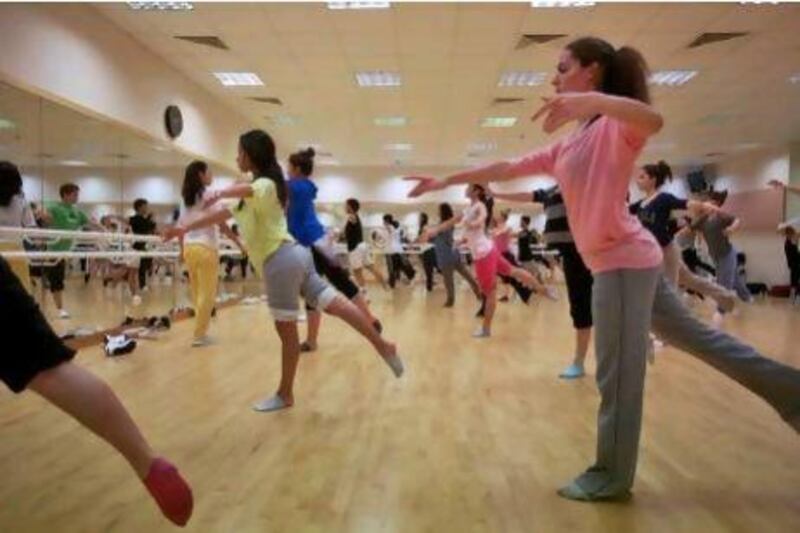DUBAI // Chantal Brocca's addiction of seven years has been a healthy one - dancing.
From the age of 15, Ms Brocca was at a dance lesson or practising routines every moment she could after school in Dubai, leaving her little time for less healthy pastimes.
"Dancing can do that to you. Ever since I attended my first dance class I was hooked," she said after sweating it out to hip-hop and street-jazz beats at the Dubai Community Theatre and Arts Centre (Ductac) this week.
Ms Brocca believes working on her interests kept her off the destructive teenage party scene on weekends when she was at school.
"Dancing took up so much of my time that I was never left with the energy and want to go to such parties," she said.
"Even if I did it was not for more than 15 or 20 minutes, just to catch up with friends."
Catherine Lockhart, the head of student services at the Greenfield Community School, said boredom was often a factor that led to children's reckless behaviour.
"The pupils who have lots of activities they are involved in are definitely less likely to engage in these more dangerous behaviours," said Ms Lockhart.
Community centres in the city are buzzing with such young people who take part in dance, drama, sports and art once school is out.
Sharmila Kamte, who has been teaching dance for eight years in Dubai, conducts street-jazz sessions at Ductac and sees 600 students from more than 20 countries every week.
"I have students who haven't missed a single class," Ms Kamte said after a gruelling, hour-long session with a group of teenagers on a Thursday evening.
"They wouldn't want to stay up late or have a hangover; that would affect their performance or force them to miss classes. They love it too much.
"And when I take them on, they are fully aware that I am against drinking, smoking or wearing obscene clothes in my classes."
Ms Lockhart said pupils committed to other pursuits had too much at stake to get involved in harmful activities.
Offences such as underage drinking and substance abuse can lead to jail and/or deportation.
"These pupils who are dedicated to their [recreational] activities tend to respect their bodies and understand the consequences of engaging in heavy drinking," she said. "They don't want to jeopardise their chances of pursuing these positive activities further."
Adam Guerreiro, 17, from the English College, said his circle of friends had a common passion.
"I make buddies who don't want to party all the time but spend more time being active," Adam said.
Sawsan Ezzedin, 15, believes pursuing an interest lifts self-confidence.
"Be a part of something where there is so much in common and it helps against peer pressure," Sawsan said.
Ms Kamte said parents should engage their kids at an early age in constructive activities because they grow to become a passion.
"Sports and dance has been with me from a very early age," she said. "When children are introduced to such activities young, the interest grows with them. It keeps them out of trouble."






